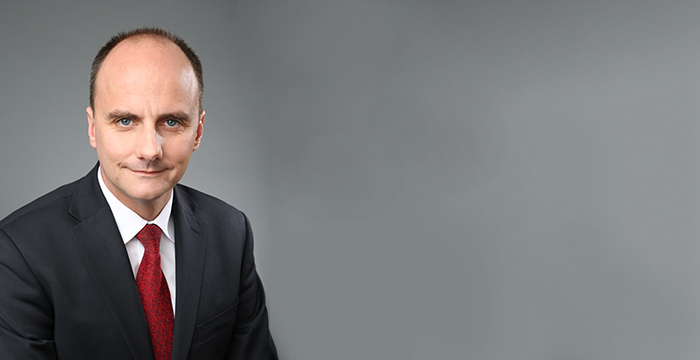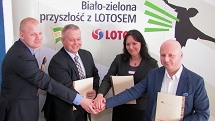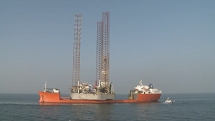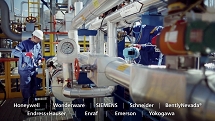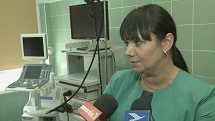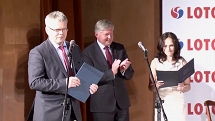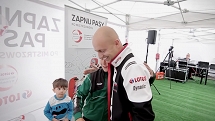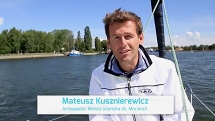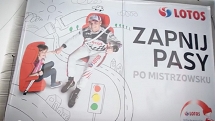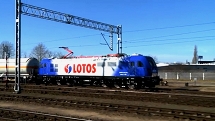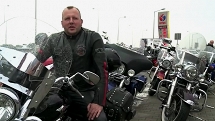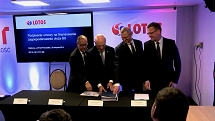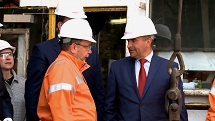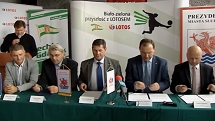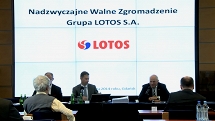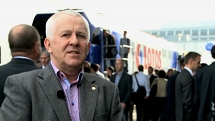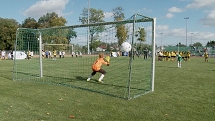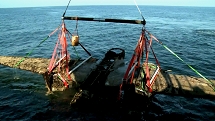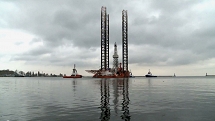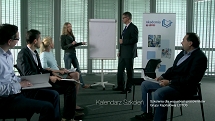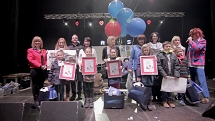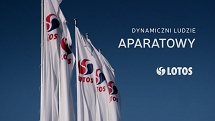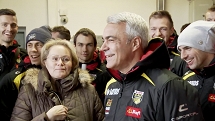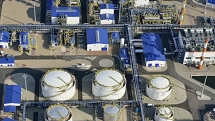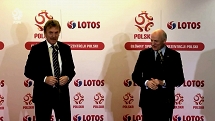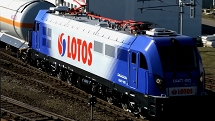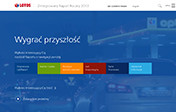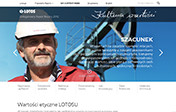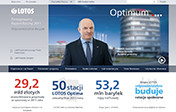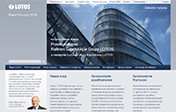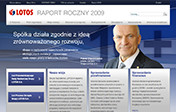-
Financial information
The past year ushered in a series of challenges for the companies in the fuel sector. The decisions made by us have demonstrated that we are able to take rapid steps to adapt to a demanding environment and ensure the desired profitability for our projects.
-
Segment performance
The segmental management model we have implemented enhances management efficiency, delivering cost and revenue synergies across the organization.
-
Letter from the Vice-President of the Board
2014 ushered in a series of challenges for the companies in the fuel sector. The decisions made by the LOTOS Group have demonstrated that we are able to take rapid steps to adapt to a demanding environment and ensure the desired profitability for our projects.
-
Business environment
The key factor that had a strong impact on both the global and Polish petroleum markets in 2014, with significant consequences for the LOTOS Group’s performance, was the price of crude oil, which also determined the price of petroleum products.
-
Strategic objectives
The LOTOS Group’s Strategy is designed to strengthen our position as a strong, innovative and efficient business which plays a major role in ensuring national energy security.
-
Business model
Our operations consist in crude oil production and processing, as well as wholesale and retail sale of petroleum products, among which are: fuels (unleaded gasoline, diesel oil and light fuel oil), heavy fuel oil, bitumens, aviation fuel, naphtha, propane-butane LPG and base oils.
-
Risk and opportunities
At the LOTOS Group, we identify a range of diverse risks, which may affect all areas of our business. The key risks in terms of their impact on our operations are the financial risks as well as risks affecting the exploration and production area. In the analysis of the risks, we also factor in issues related to sustainable development.
-
Key data 2014
With revenue of ca. PLN 28.5bn in 2014, we rank fourth in the group of 500 largest businesses in Poland.

Letter from the Vice-President of the Board
Dear Stakeholders,
For the global fuel sector, 2014 was a year of dynamic transformations in the macroeconomic environment, the most important of which was the plunge in crude oil prices seen in the second half of the year (Brent DTD down from USD 111/bbl as at June 30th 2014 to USD 55/bbl as at December 31st 2014), which precipitated a similar decline in refining product prices. These changes had a bearing on the operations of the LOTOS Group, both in terms of the execution of its business strategy and the consolidated financial performance reported by the Company.
In 2014, we put particular focus on giving the LOTOS Group appropriate foundations for delivering its growth objectives. A rights issue was carried out to increase the Company’s share capital. In what was the largest public offering on the Warsaw Stock Exchange in 2014, we generated proceeds of PLN 1bn, which will be applied towards financing of a delayed coking unit with auxiliary infrastructure to be constructed under the EFRA Project (the total cost of the project is estimated at ca. PLN 2.34bn, with the issue proceeds expected to contribute PLN 530m−650m), and development of the Baltic Sea’s B4 and B6 fields, which hold gas reserves of up to 4 billion cubic metres (the project’s estimated total capex is put in the region of PLN 800m, of which PLN 350m–470m will be covered using the issue proceeds). Testament to the success of the transaction is the considerable interest it attracted from the shareholders, who exercised 98.3% of their pre-emptive rights, and the equally high, at over 98%, reduction in the number of additional subscription orders, which shows the trust placed in us by our shareholders and their support of the strategic projects we are pursuing to enhance the value of Grupa LOTOS.
The consolidated financial performance under IFRS was negative, with 2014 closing with an operating loss (EBIT) of PLN -1,393m. It needs to be noted, however, that the weak result was attributable to a series of one-off non-cash events associated primarily with changes in the price of crude oil and key refining products, leading to a remeasurement of inventories, as well as an impairment loss for the full amount of the capital expenditure on the YME field recognised in June 2014. However, net of these events, the LIFO effect (measurement of inventories based on weighted average cost) and other non-cash events, LIFO-based EBIT would have amounted to more than PLN 580m. Before amortisation and depreciation, this would have yielded a normalised LIFO-based EBITDA of nearly PLN 1.4bn. These figures demonstrate the LOTOS Group’s ability to generate cash in very challenging market conditions. This potential is fully supported by the operating cash flow of PLN 1,381m.
In the upstream segment, work continued on the development of the B8 field. It was decided that the scope of modernization of the ‘Petrobaltic’ platform consisting in converting the rig into a production centre would be changed. The goal was to achieve a reasonable rate of return from the investment amid the difficult situation on the global oil market. Following a series of analyses, relevant cost assumptions were revised to restore the original viability framework of the project. This will help achieve the expected increase in the economic viability of the project of field development. Thanks to reduced capital expenditure, the project is able to deliver a satisfactory rate of return despite significantly lower crude oil prices. In August 2014, B8 Sp. z o.o., Baltic S.K.A. (SPV), Polskie Inwestycje Rozwojowe S.A., Bank Gospodarstwa Krajowego, and Bank Pekao S.A. entered into a series of project finance agreements related to the financing of the development of the B8 field.
As for the segment’s other key projects:
- The development concept for the B4 and B6 gas fields was chosen (ensuring off take of the natural gas produced and transported onshore by pipeline will be vital to the execution of the project);
- Production of gas and condensate from the Heimdal fields (Alta, Vale, and Skirne) was continued on the Norwegian Continental Shelf;
- Following completion of the overhaul of the Heimdal platform in June 2014 (Heimdal Extension Life Program or HELP), the life of the platform was extended until 2034.
The downstream segment’s key growth-oriented task is the EFRA Project, which provides for the construction of a delayed coking unit (DCU) with auxiliary infrastructure. The LOTOS Group is currently in the final stages of preparation for the construction of the unit, which will directly enhance processing efficiency by minimising production of unprofitable heavy fuel oil. Following the project’s completion, the annual output of high-margin products will grow by 900 thousand tonnes. We estimate that the launch of the DCU will add ca. 2 USD/bbl to its refining margin thanks to increased depth of crude processing and the resultant improved yield structure as well as synergies between the DCU unit and the upgraded and extended refinery. By the end of 2016, we also intend to complete a hydrogen recovery unit (HRU), which will further increase the refining margin.
In 2014, we continued the expansion of our service station chain, which grew to 441 locations as at the year’s end. Moreover, by eliminating the obsolete patronage (DODO) stations, we were able to improve the overall quality of the chain. This brought us closer to our strategic objective of securing a 10% share in the retail fuel market, at the same time increasing the chain’s profitability by a significant margin.
The past year ushered in a series of challenges for the companies in the fuel sector. The decisions made by the LOTOS Group have demonstrated that we are able to take rapid steps to adapt to a demanding environment and ensure the desired profitability for our projects. Thanks to the trust placed in us by the shareholders, we obtained funds to finance a variety of promising growth-oriented investment projects, whose expected returns will ensure further value growth and reinforce our position as a dynamically-growing player in the oil industry in this part of Europe.
Yours sincerely,

Mariusz Machajewski
Vice-President of the Board
Chief Financial Officer
Grupa LOTOS
